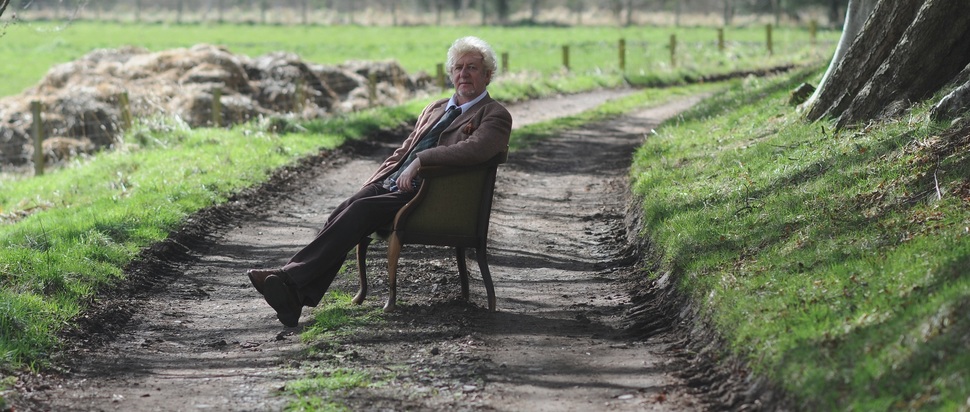Mock Trial: Secure Scotland's Wool Scouring Moot
Secure Scotland's Luke Padfield and Jessica Wheeler tell us about their upcoming moot, debating the environmental ethics of wool scouring in the textiles industry
Wool scouring, the process by which 'raw' wool is cleansed in order to produce usable wool, is a highly multifaceted practice due to its environmental impact. A study in Spain found that for every kilogram of 'clean wool' produced by aqueous cleaning, around 17 litres of polluted effluent were produced. (LIFE European Commission, 2016). Given wool's centrality to Scotland's textiles industry, environmental organisation Secure Scotland want to debate the issues around scouring, and plan to do so by holding a mock judicial trial, known as a moot, on Thursday 2 June in the Scottish Storytelling Centre in Edinburgh.
The proposed 'Green Court', the first of its kind held by the organisation, will see the 'prosecution' and 'defence' present cases for and against the activity of wool scouring by calling witnesses, citing evidence, and later opening the discussion to the audience. The court will also be overseen by a judge, a role held by actor John Bett, a member of the celebrated 7:84 theatre troupe, and original performer of The Cheviot, the Stag, and the Black, Black Oil. The event will be open to the public alongside an invited audience composed of relevant political and environmental influencers. The Skinny speaks with Luke Padfield and Jessica Wheeler, associates of Secure Scotland, about the event.
The Skinny: What made you focus your first moot on the issue of wool scouring?
Padfield: I went on a journey to a tweed mill, following on from doing sewing during lockdown, and got chatting with one of the weavers there. He mentioned lanolin and wool scouring and I didn’t know anything about it. I just sort of latched on to that part of the process because we had been talking about human rights, the environment, and ecological security. I brought that back to Secure Scotland who started talking a little bit about it and learning more about the process.
What issues do you expect the moot to bring up?
Padfield: It's a good hanger to illustrate some of the problems or issues that crop up with human rights, environmental rights, and environmental law in Scotland. There has been loads of talk that we should have an environmental court in Scotland. The idea to do the moot was to talk about some of the issues that might come up that we're not necessarily talking about at the moment, because they aren’t getting to court yet.
What would you say to people who are interested in participating in or attending the moot? Is it important for the public outside of Secure Scotland to get involved?
Wheeler: Yes! It's a very wide conversation that we're trying to have through Secure Scotland, though our main purpose is to have conversations about issues that would help to support Scotland to be a safe place to live, like food security and clean water and air. I think it's really interesting when you get people involved from other disciplines in that and a part of the conversation.
Padfield: It's an opportunity to bring people together from different walks of life and try and translate some of the stuff – especially the legal language – so people can understand what's being said on different levels on issues that you care about. It's a chance to review your own relationship with the law in relation to the environment. If you feel let down by the law, then this might restore your faith in it. Whereas if you're one of the faithful then it might make you think twice. It's about getting a better understanding of what the law says in these areas, and sort of changing expectations.
What do you hope the moot brings?
Wheeler: This is the first moot I've done, so I'm really excited about participating. I think it's a really good way of approaching the issue because it's not real, but it's got the potential to really influence the way we are moving forward and what we think of as important. Giving other things a voice and giving the environment a voice.
Padfield: It's just about creating a sense of momentum and that's what I hope it does. The last two moots I've experienced after the debate and the judge has announced the decision, there's a big conversation that goes on and that’s the part that I'm really looking forward to. That's the part I think most people get a lot out of.
Wheeler: It is really interactive in that sense. You are able to participate and you're not sitting watching a play unfold before you. After COP26, I think this is a really valuable thing to be doing because it's so easy to have all that bluster and then it gets forgotten and we move on to the next thing. I think people do want to feel they can have an influence on the way we move forward in what we are doing with the environment and how we can help to support it.
The Green Court: Bah Bah Black Sheep, Scottish Storytelling Centre, Edinburgh 2 Jun, 6pm
Follow Secure Scotland on their Facebook, Twitter, Instagram, and website for further updates
